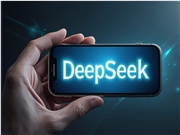Entrepreneur stars who once sold the live-streaming app Periscope to Twitter are back with a new project. Former Twitter product leader Kayvon Beykpour announced on Wednesday the launch of Macroscope, an AI system designed for developers and product leaders that can summarize codebase updates, detect vulnerabilities, and more.
The startup team is impressive. CEO Beykpour has reunited with childhood friend Joe Bernstein, who previously co-founded Periscope and sold the early enterprise startup Terriblyclever to Blackboard in 2009. The third co-founder, Rob Bishop, also has a notable background; he sold his computer vision and machine learning company Magic Pony Technology to Twitter in 2016.
Macroscope positions itself as a "AI-powered understanding engine" aimed at saving engineers time. Beykpour said this is exactly the kind of product they "wanted" when they built their early companies.
The创业 inspiration came from painful personal experiences. Beykpour admitted, "I have experienced this pain in every company, whether it was one we built or a large public company like Twitter, and we've experienced it the hard way." He further explained, "Trying to understand what everyone is doing, especially in an organization as large as Twitter with thousands of engineers, was almost my entire job and the part of being a product leader at Twitter I disliked the most."
Current development processes do have efficiency issues. Engineers use various tools like JIRA, Linear, and spreadsheets to track progress, spending too much time in meetings rather than focusing on actual development. Macroscope is designed to solve these pain points.
The product's technical implementation is relatively simple. Customers first install the GitHub app, authorize Macroscope to access the codebase, and then optionally install other integration apps like Slack, Linear, and JIRA. The software automatically handles the rest by analyzing the code and tracking changes.
The core technology uses a code traversal process, leveraging abstract syntax trees to collect important contextual information about how the customer's codebase works, and then combines it with a large language model for analysis.
The features are comprehensive. Engineers can use Macroscope to find bugs in pull requests, summarize pull requests, get summaries of codebase changes, and ask questions based on code research. Product leaders can receive real-time summaries of product updates, productivity insights, and natural language answers about product code or development activities.
Beykpour emphasized the product's ease of use: "You can ask natural language questions regardless of your technical ability. If you want to understand the codebase without disturbing senior engineers on your team, this could be very useful. If you're a CEO and want to know 'what we accomplished this week,' your choices are either to ask Macroscope or bother some teammates. One is far less expensive than the other."
In terms of competition, although no product directly competes with all of Macroscope's features, it does compete with tools like CodeRabbit, Cursor Bugbot, Graphite Diamond, and Greptile in the code review space. However, Macroscope claims that in internal benchmark tests, its product found 5% more bugs than the next best tool while generating 75% fewer comments.
The business model is subscription-based, costing $30 per active developer per month, with a minimum of five seats, and enterprise pricing and custom integrations for larger companies. The product requires GitHub Cloud.
Before its official launch, several startups and large companies have already been using the product, including XMTP, Things, United Masters, Bilt, Class.com, Seed.com, ParkHub, and A24 Labs.
This San Francisco-based startup has a team of 20 people and has raised $30 million in Series A funding, which was completed in July and led by Michael Mignano from Lightspeed Venture Partners. Other investors include Adverb, Thrive Capital, and GV (Google Ventures). So far, Macroscope has raised a total of $40 million.
From Periscope to Macroscope, this team's transformation reflects the evolution of tech trends. As AI technology begins to permeate every aspect of software development, and as code understanding and project management become increasingly complex challenges, AI tools like Macroscope may indeed significantly enhance development efficiency. However, whether such tools can truly address communication and coordination issues in large organizations remains to be verified through practical application.










